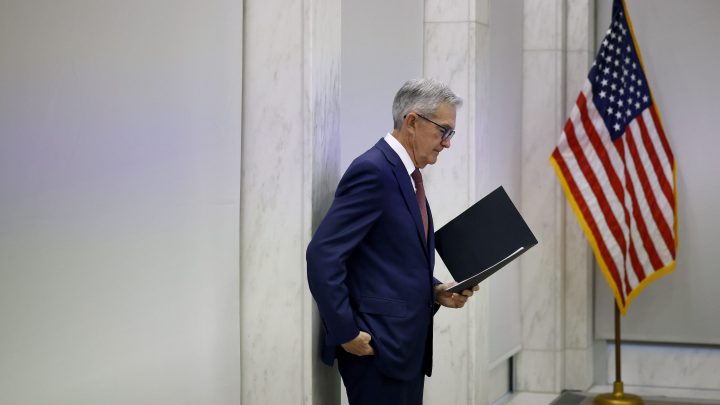
Pandemic stimulus spending boosted the economy. What happens now that it’s over?
Pandemic stimulus spending boosted the economy. What happens now that it’s over?

Over the last couple years, we’ve heard a lot about the Federal Reserve’s role in setting monetary policy. In other words, setting interest rates in order to stimulate the economy, or more recently, to slow it down.
The government has another powerful tool at its disposal: fiscal policy. Think government spending, like Social Security and other benefits, or relief aid.
A new paper out Monday from researchers at the Federal Reserve Bank of San Francisco found that fiscal policy contributed a lot to economic growth over the last few years.
But over the next few years? The researchers say that fiscal policy isn’t going to do a whole lot.
It’s been a while since the federal government stepped in and boosted the economy with more than $5 trillion worth of pandemic relief aid.
“The enhanced unemployment benefits have expired, the direct checks haven’t gone out in quite some time, the Paycheck Protection Program has ended,” said Michael Pugliese, senior economist with Wells Fargo.
He said it’s not like the government has reversed course and enacted huge spending cuts or tax increases. Instead, Pugliese said you can think of its current fiscal policy as pretty neutral.
“It’s neither acting as a material boost or drag on the U.S. economy,” he said.
And that’s not necessarily a bad thing, said Menzie Chinn, an economics professor at the University of Wisconsin.
Chinn said on one hand, we don’t want the government making big spending cuts or tax increases to drag on the economy right now.
“There’s some worry about a recession coming, and you don’t want the spending cuts to hit exactly at a time when you’re at a sensitive point in the business cycle,” he said.
And on the other hand, Chinn said we don’t need fiscal policy to boost anything either.
Remember — the Federal Reserve is trying to cool down the economy to bring down inflation.
“Unemployment is still very low,” he said. “GDP [gross domestic product] still seems to be growing quickly.”
The economy is still strong in large part because of all that spending the government did earlier the pandemic.
Preston Mui, senior economist at the advocacy group Employ America, said even though consumers aren’t getting any relief aid right now, their finances are still pretty healthy.
“Household balance sheets were doing really well in 2022, compared to 2019,” he said.
But Mui said we’re still not sure how people’s balance sheets will change now that the government’s fiscal policy is more neutral, especially since student loan payments just resumed and pandemic-era child care subsidies recently came to an end.
“The worry would be that there’s lags in how that manifests in the economy and the labor market,” Mui said.
It’ll be important for fiscal policy to keep the economy afloat, he said, especially as the Federal Reserve’s monetary policy continues to slow things down.
There’s a lot happening in the world. Through it all, Marketplace is here for you.
You rely on Marketplace to break down the world’s events and tell you how it affects you in a fact-based, approachable way. We rely on your financial support to keep making that possible.
Your donation today powers the independent journalism that you rely on. For just $5/month, you can help sustain Marketplace so we can keep reporting on the things that matter to you.

















